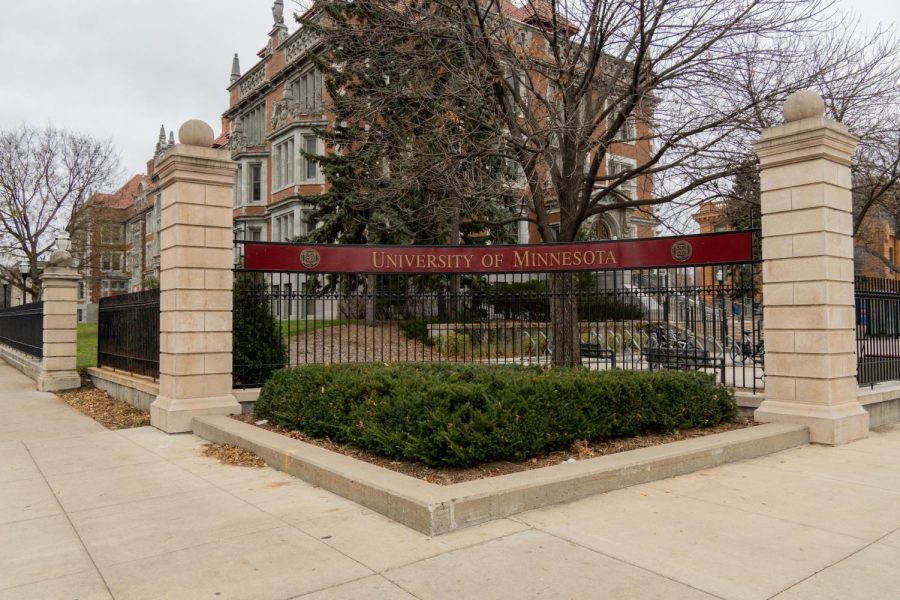Across the nation, colleges are progressively relying more on adjunct instructors as a cost-effective alternative to tenured and tenure-track positions. In the fall of 2021, 68% of U.S. faculty were in these positions, a sharp increase from 47% in 1987. This change can largely be attributed to the steady rise of college enrollment, forcing colleges to trim their expenses.
The University of Minnesota is no exception. 28% of the current staff falls under the label of a part-time, non-faculty worker or non-tenure track faculty. While that percentage is far less than the national average, adverse effects of this practice are still felt by students and faculty.
Because adjunct professors often teach part-time or are only present on a contractual semester basis, students find difficulty in maintaining strong relationships with them. Failure to develop these relationships can harm students’ educational growth.
The consistent presence of a professor makes it easier to develop a stronger bond with them, according to Samantha Neinas, a second-year University student. That relationship creates a level of comfort to ask questions and attend office hours. With short-term professors, that connection is often harder to come by, creating the possibility students are discouraged from asking for help.
“You don’t get as many opportunities for office hours or get as many opportunities to ask questions in class,” Neinas said.
Adjunct instructors are often expected to demonstrate the commitment a tenured instructor would but with far less time. In a survey of 500 contingent faculty members across multiple universities, 17% reported they had less than two weeks to prepare for their class from the day they were hired. The resources they can provide suffer as a result.
Due to only teaching one class and not having an individual office space, Hubbard School of Journalism adjunct instructor Micah Emmel-Duke said he isn’t often on campus.
Emmel-Duke said office hours can be difficult to provide for students because of this. They primarily take place online and prevent students from connecting with their instructor in person.
Building a strong relationship with professors has historically led to an improvement in educational outcomes. Studies have shown that students are more likely to attend class, get higher grades and graduate if they make an effort to connect with their instructors. Without this important resource, it becomes more difficult for students to ask questions when they need to.
Educators shouldn’t be blamed for the resources they can’t provide. Short-term educators are overburdened and undersupported. The adjunct system is simultaneously necessary for providing education yet harmful to students’ academic growth.
However, the adjunct system doesn’t only harm students. Adjunct faculty bear the impact as well. Because of the temporary nature of their positions, instructors lack the job security needed in their roles. Among instructors who had been terminated for non-performance-related reasons, nearly 41% received less than a week’s notice.
It is impossible to ignore the impact educators — adjunct or otherwise — have on their students. The lessons students learn will stay with them long after they leave the classroom, but adjunct instructors continue to struggle.
In a survey of over 1,000 adjunct faculty members across several universities, more than one out of five reported having skipped filling a prescription and more than two out of every three have put off dental care due to healthcare costs. The instability of the adjunct system places a large burden on the shoulders of instructors and provides them with little financial compensation in return.
The adjunct system is in dire need of revision. Our educators deserve to feel appreciated just as much as students deserve to feel heard. Overall, it is clear significant changes must be made to ensure both of those needs are met. That starts by giving educators more support in the classroom so they can in turn support their students. Additional time, space and funding for adjunct faculty will have positive ripple effects on the education system as a whole.
These calls for help from faculty and students alike must finally be heard. Educators are the backbone of our society. It’s time we started treating them like it.























William Rudelius
Feb 18, 2024 at 3:40 pm
Right on the mark. I’m a retired U of M professor and have been working on this issue for five decades. You might look at my op-ed piece on the topic in the May 7, 2021 Star Tribune. Will try to reach you tomorrow. William Rudelius